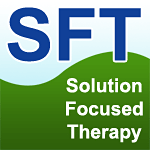Welcome
to Scotland's Premier Therapy and Holistic Personal
Development Site
'Therapeutic care
& Personal Development - The solution to your problems is in
you'
 Neuro
Linguistic Programming (NLP) Edinburgh and Glasgow. (CNHC registered
hypnotherapist) Neuro
Linguistic Programming (NLP) Edinburgh and Glasgow. (CNHC registered
hypnotherapist)
All our therapy services are available at our City Centre bases in
Edinburgh and Glasgow and we are
considering expanding into other cities shortly.
We have two fully qualified
therapists on
staff, and a network of trusted colleagues around the UK we refer to.
We are complementary health
practitioners,
not alternative health practitioners. This means that we work WITH the
medical profession. If you have an illness or injury, or if you are
going to embark on a new diet, fitness plan or if you have any
uninvestigated symptoms, you must consult your medical doctor.
Neuro Linguistic
Programming - NLP
NLP
is often misquoted or misunderstood. At it's heart it is a modelling
system developed by Bandler and Grinder. It's true purpose was to find
ways of modelling experts in their fields, find out why they were so
good, and enable other practitioners in their fields to recreate that
brilliance. Thus NLP soon became associated with the search for
excellence.
NLP
is usually associated with two areas: Marketing and Therapy. This is
because business marketing including sales, and personal therapies were
the main areas that were modelled. Thus sales, psychotherapy, Gestalt,
CBT, Hypnotherapy, group therapy and a range of other source material
were examined and modelled.
The
practical result was that a rich diversity of highly applicable tools,
methods and systems were accumulated. In theory this meant that the
"best" of a range of systems was modelled and practitioners of NLP
would then be able to apply these at a similar level to the "best
experts" in the field.
In
practice of course things are a little different. It is true that the
toolbox associated with NLP is diverse and highly applicable. In cases
where the client has no deep underlying problems that need clinical or
holistic treatment, NLP can be highly effective. The highly accessible
and "easy to learn" methods work very well with minor or surface issues
and for personal development.
For
deeper underlying issues the client should be careful of seeking NLP as
a source of rapid easy answers! This is not what NLP is really designed
for. The tools available in NLP elicit rapid change and personal
development through empowerment, personal training and behavioural
change. It is a rapid change therapy and does not truly address deeper
emotional issues. Therefore if you are looking to "improve" something
or have minor problems, NLP could provide rapid results. If you have
deeper issues then NLP alone is not appropriate.
NLP in combination
with professional therapies
If
combined with professional therapy methods, NLP can really come into
it's own. Because NLP practitioners have studies BOTH the toolbox
associated with NLP, and the ability to model other methods, a
professional therapist with NLP training is able to add many more tools
and competencies onto their existing professional training.
A
well qualified therapist who is also NLP trained is able to use
professional therapies where appropriate for underlying issues, and NLP
tools where appropriate for client empowerment. This combination is
highly powerful.
Note
to readers: the exact content of NLP practitioner training courses is
not a fully agreed area, thus different training courses may emphasis
different content. Sample content is available at the ANLP (Association
for NLP) website. However the variance in content makes it even more
important to seek support from a practitioner with a sound therapeutic
background in the area you need support in.
So
NLP is not a therapy?
No
NLP is not a therapy. It is a modelling system that allows NLP
practitioners to use source material from therapies. This is then
provided in a similar way to life coaching or cognitive behavioural
training, but without the depth you would expect from professional
therapists qualified in those areas.
So
how do I choose an NLP practitioner to help me?
Look
for a practitioner with a sound background in therapies. These might
include Hypnotherapy, Life Coaching, Sports coaching, Psychotherapy,
Counselling. The practitioner should also then have some qualification
in NLP, such as a diploma in NLP, NLP Practitioner training, or NLP
Master Practitioner training. They might also have studies
NLP as part of Hypnotherapy, CBT or Life Coaching training, or they may
have been assessed in their competence in providing NLP and Coaching
training in practice, for example as part of an NVQ training and
development award. Most importantly look for:
-
Good base in professional therapy
-
NLP training and or qualification
-
Adherence to National Occupational Standards
-
Registration and Insurance
Naturally
we adhere to high
standards of NLP provision. Stuart is the NLP practitioner in our
practice. Stuart holds an ASET Level 3 accredited NLP Diploma award,
was assessed in actual NLP use as part of an NVQ Level IV Training and
Development Award, has studied NLP as part of a number of other
professional qualifications, and is a training provider of NLP
workshops and courses to professional industry standards. NLP
is provided according to the Healing NOS National Occupational
Standards, and the Counselling NOS (1995) where appropriate. NLP is
largely derived from advanced Hypnotherapy using what is known as the
"Milton Model". Stuart also holds an ASET Level 4 Hypnotherapy Award.
Stuart
has written an advanced practitioner training diploma in NLP (ASET Level 4 NLP Award). The award is
already
available via our colleagues at Stonebridge.
In the first instance drop us an
email or
use the feedback form to contact us. We can then advise whether we feel
we can appropriately assist you.
We support the
coming voluntary regulation of psychotherapy and
counselling. Stuart is a CNHC registered hypnotherapist (voluntary
regulation of hypnotherapy).
To
Contact Therapy Services
EASY METHOD:
From 2010 psychological therapy will also contain elements of
mindfulness and CBT in order to increase client development between
sessions.
Would
you like to
train as a professional therapist and gain an award from a fully
accredited awarding body? Click:
HERE
|





